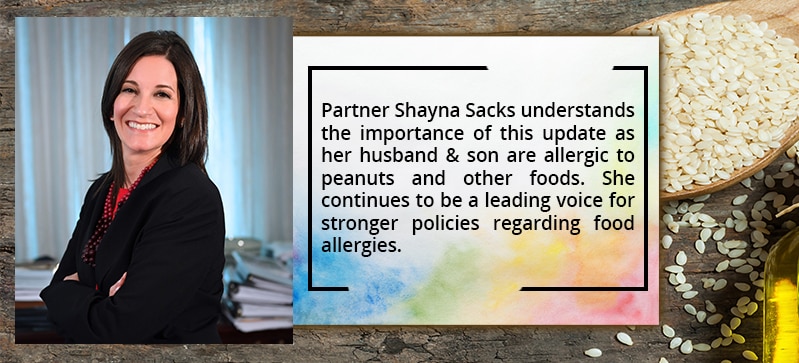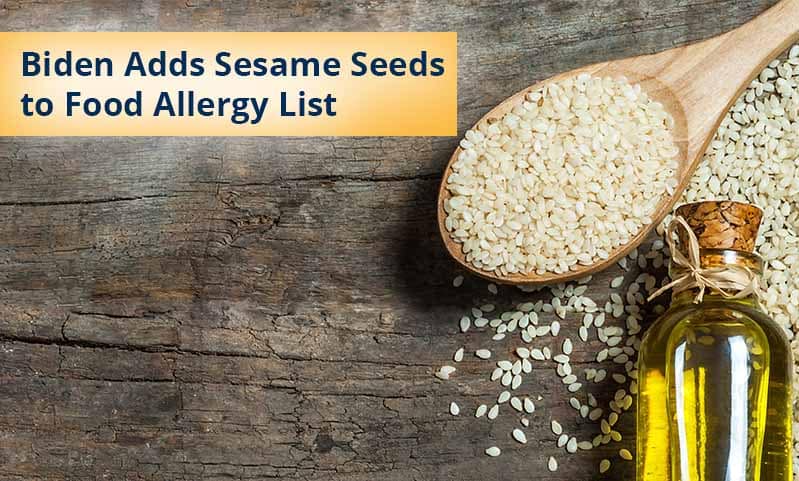Beginning January 1, 2023, all foods which contain sesame seeds, or a derivative of this product, must meet special labelling requirements.
President Biden signed the FASTER Act after it passed both houses by nearly unanimous votes.
Researchers believe that about 1.6 million Americans have sesame allergies, and about half these individuals have anaphylactic reactions when exposed to sesame.
Several countries have already declared sesame to be a dangerous potential allergen. The State of Illinois also did so in 2019.
The packaging label requirement makes it easier to identify foods which may contain, or have been contaminated by, sesame.
Most Common Food Allergies
Food allergies are on the rise: they affect about 5 percent of adults and 8 percent of children.
Food intolerance, like lactose intolerance, could make people mildly sick.
Food allergies, like a milk allergy, are much worse. During digestion, the body mistakenly believes that some of the proteins in the food are harmful. So, the body essentially attacks itself.
People could be allergic to just about any food. However, these nine products are responsible for most of the food allergies in the United States:
- Cow’s Milk: Most people know that babies are severely allergic to the Immunoglobulin E (IgE) in cow’s milk. 90 percent of children outgrow this allergy by age 3, which means 10 percent don’t outgrow it. A significant percentage of these individuals never outgrow this allergy.
- Eggs: This allergy is second only to cow’s milk. Fewer children have it and fewer children outgrow it. Most people, but far from all of them, are allergic to egg whites instead of egg yolks. Interestingly, many of these people can eat products which contain eggs. Extreme heat alters egg proteins. But unless you know for sure, it’s probably better not to risk it.
- Tree Nuts: Allergies to walnuts, almonds, cashews, and other tree nuts affect about 1 percent of Americans. That translates to some 30 million people. If you are allergic to one kind of nut, it’s best to avoid all of them. These allergies have a very high anaphylaxis reaction percentage.
- Peanuts: If you’re allergic to tree nuts, you should also avoid these legume nuts. People with this allergy should stay away from anything which might contain a peanut, peanut oil, or peanut butter.
Shellfish, wheat, soy, fish, and sesame seeds round out the top ten. Honorable mention, or perhaps dishonorable mention, goes to bananas, avocados, peaches, and kiwi fruit.
How to Protect Yourself
The best way to protect yourself from food allergies is to always read the fine print on a label or menu.
Frequently, we throw things into shopping carts without eyeballing the label or order things off menus which look good. Such behavior could be disastrous for people with food allergies.
The aforementioned anaphylactic reactions are usually scary.
Therefore, victims, friends, or family members panic and could make the situation worse. That’s why it’s best to be prepared for it.
If a restaurant knows you have an allergy and doesn’t protect you or a food label is misleading, contact an experienced New York personal injury attorney at Napoli Shkolnik PLLC. We handle such matters on a nationwide basis.

